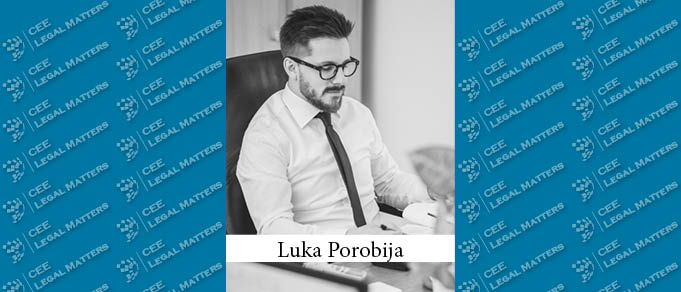The Croatian tech sector has been booming lately. With Rimac and Infobip achieving unicorn status, several other tech companies well on their way to a valuation above EUR 1 billion, and the recent successful listing of several IT companies, it seems like the Croatian tech party is going strong, and everyone is invited.
As it now looks, further expansion of the sector is all but assured. However, there is a potential barrier to this expansion and it comes in the form of Croatian IT infrastructure.
Presently physical Croatian IT infrastructure is, to put it mildly, lacking. While better than some of its non-EU neighbors, the available bandwidth is low, slow, and expensive compared to New-Europe EU members, with limited coverage outside of population centers. Additionally, almost all data centers are situated in or around Zagreb (an earthquake zone), with only one of these designated as a Tier III data center.
While the situation is not presently ideal, there is room for optimism. It is refreshing to hear that one of the three largest telecoms in Croatia (Telemach) is taking the issue seriously and is planning a EUR 200+ million investment in 5G and fiber-optic infrastructure. Several other private telecoms are announcing investments into infrastructure and the construction of Tier III+ data centers outside of Zagreb.
That is undoubtedly a very good start, but far more private investment will be needed if Croatia is to catch up with its competitors. Due to very short best-before dates in the industry, any investment into IT infrastructure should be executed and implemented as quickly as possible. Competition is fierce, demand is rising, and the quickest to provide cheap(er) high-level IT infrastructure solutions will be poised to reap most of the rewards. Several factors must align to execute such a quick investment.
Firstly, financing must be readily available for private investors. There are significant public funds (EU and local) available, and we expect the Croatian private banks to take a further step and take on more financing of IT infrastructure projects.
Secondly, an adequate legal framework must be in force, with as few as possible bureaucratic barriers while retaining adequate legal safeguards and remedies for investors and operators. Though not bad, the legal framework in Croatia is still lacking in certain aspects.
While the legislative macro level is adequately covered by EU legislation (Directive 2018/1972) and Croatian legislation (Electronic Communications Act), it is at the micro-level that potential issues arise and can have a severely detrimental effect on existing and future investment in infrastructure.
One such example is a provision of a binding rulebook/policy document (Ordinance on the manner and conditions of access and joint use of electronic communications infrastructure and related equipment) issued by the Croatian telecom regulator HAKOM regulating the refund of investments when the investor is different from the infrastructure owner/operator. The provision states (freely translated):
“The costs referred to in paragraph 2 of this Article shall be reimbursed by a one-off reduction of the infrastructure lease invoice under other agreements for the joint use of cable ducts. In the event that the full amount cannot be refunded in the current year, the remaining amount will be refunded from the next invoice and so on until the final refund of the total cost.”
The provision, in essence, implies that the investor will be refunded at an unspecified later date, and through offset of the lease, the investor will be paying the infrastructure operator for the use of the infrastructure they invested in.
Our view is that such a provision is very open to interpretation (what if the lease agreement is terminated prematurely?), can be seen as favorable to the infrastructure operator, and limits the parties’ contractual freedom. Any investor contemplating investing a significant amount will be reluctant to agree to such a provision, knowing that their investment will become someone else’s property, without any guarantees that it will ever be refunded in full.
We believe there is room for improvement and more positive interpretation by both parties and the regulator, as legal uncertainty is a sure-fire way to dissuade much-needed prospective investors from investing in Croatian IT infrastructure.
By Luka Porobija, Partner, Porobija & Spoljaric
This Article was originally published in Issue 8.11 of the CEE Legal Matters Magazine. If you would like to receive a hard copy of the magazine, you can subscribe here.

















